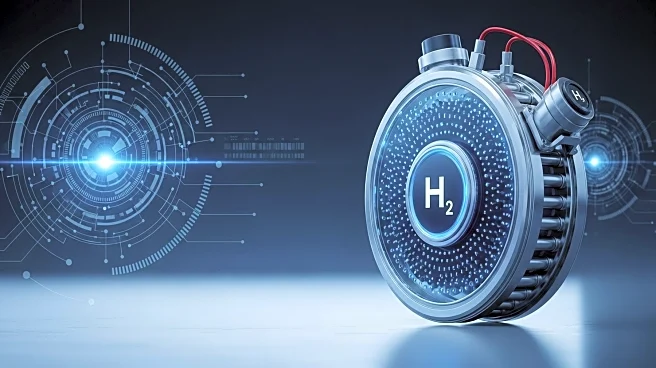What is the story about?
What's Happening?
Johnson Matthey is expanding its investment in hydrogen internal combustion engines (ICE) despite a slowdown in the hydrogen market. The company is enhancing its testing capabilities for hydrogen ICE, a move that contrasts with recent industry trends. In June 2025, Honda delayed its hydrogen fuel cell vehicle plans due to changes in the global hydrogen market. Similarly, Stellantis discontinued its hydrogen fuel cell program, citing a lack of mid-term economic sustainability. These developments highlight a challenging environment for hydrogen technology in the automotive sector.
Why It's Important?
The investment by Johnson Matthey in hydrogen ICE is significant as it underscores a commitment to alternative fuel technologies despite market uncertainties. This move could influence the future of hydrogen as a viable energy source in transportation, potentially impacting the automotive industry's approach to decarbonization. While some companies are retreating from hydrogen fuel cells, Johnson Matthey's focus on ICE could offer a different pathway for hydrogen integration, potentially affecting market dynamics and investment strategies in the clean energy sector.
What's Next?
The future of hydrogen technology in transportation remains uncertain, with potential shifts in industry focus and investment. Stakeholders will likely monitor Johnson Matthey's progress and market response to its hydrogen ICE initiatives. The company's success or failure could influence broader industry trends and decisions regarding hydrogen's role in achieving decarbonization goals.















